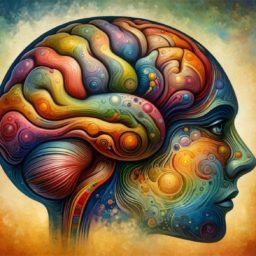
Dan Kahan is the Elizabeth K. Dollard Professor of Law & Professor of Psychology at Yale Law School. His primary research interests are risk perception, science communication, and the application of decision science to law and policymaking. Motivated numeracy and enlightened self-government WebsiteDan KahanWikipediaDan KahanBlogThe Cultural Cognition ProjectRSS FeedThe Cultural Cognition ProjectTwitter@cult_cognitionYouTubeDan KahanGoogleDan Kahan Twitter … Continue reading Dan Kahan Professor of Psychology at Yale Law School

Are Smart People Ruining Democracy? | Dan Kahan Posts where this video is embedded Science Curiosity A desire to seek out and consume scientific information for pleasure Tribal Thinking Tribe before truthPeople: Dan KahanDan Kahan Professor of Psychology at Yale Law SchoolPosts: Dan KahanOur Tribal Nature The human brain is hardwired to be tribalScience Curiosity A desire … Continue reading Are Smart People Ruining Democracy? Dan Kahan, 2018

It has been assumed (very reasonably) for many years that enlightened self-government demands a science-literate citizenry. Perversely, however, recent research has shown that all manner of reasoning proficiency – from cognitive reflection to numeracy, from actively open-minded thinking to science literacy – magnifies political polarization on policy-relevant science. Credit: Dan Kahan Source: Science curiosity research … Continue reading Science Literacy Magnifies Political Polarization on Policy-relevant Science Dan Kahan

Abstract Why does public conflict over societal risks persist in the face of compelling and widely accessible scientific evidence? We conducted an experiment to probe two alternative answers: the ‘science comprehension thesis’ (SCT), which identifies defects in the public’s knowledge and reasoning capacities as the source of such controversies; and the ‘identity-protective cognition thesis’ (ICT), … Continue reading Motivated Numeracy and Enlightened Self-government Dan Kahan (2017)

Abstract This article describes evidence suggesting that science curiosity counteracts politically biased information processing. This finding is in tension with two bodies of research. The first casts doubt on the existence of “curiosity” as a measurable disposition. The other suggests that individual differences in cognition related to science comprehension — of which science curiosity, if … Continue reading Science Curiosity and Political Information Processing Dan M. Kahan, Asheley Landrum, Katie Carpenter, Laura Helft and Kathleen Hall Jamieson (January 2017)

In this book, The Scout Mindset, Julia Galef explains that we see what we want to see when it comes to what we believe. In other words, we have what Julia Galef calls a “soldier” mindset. From tribalism and wishful thinking to rationalizing in our personal lives and everything in between, we are driven to … Continue reading Scout Mindset: Why Some People See Things Clearly and Others Don’t by Julia Galef (2021)

Science curiosity is a desire to seek out and consume scientific information just for the pleasure of doing so. People who are science-curious do this because they take satisfaction in seeing what science does to resolve mysteries. That is different from somebody who would show interest in scientific information because they had a specific goal … Continue reading Science Curiosity Is a Desire to Seek Out and Consume Scientific Information Dan Kahan

Our Tribal Nature Science Curiosity Close Pop-up all posts in this chapter We are innately tribal. We strongly need to belong to groups and maintain fulfilling relationships with others. This need to belong warps our reasoning ability. It is known as tribal thinking. The meaning of the word tribe In recent years, the word tribe … Continue reading Tribal Thinking Tribe before truth

Tribal Thinking Discrediting People ** Close Pop-up all posts in this chapter Motivated reasoning is where we look for arguments in favor of conclusions we want to believe, regardless of the evidence. This is a primary stumbling block in forming sound beliefs and making good decisions. However, if we are science-curious, we are more likely … Continue reading Science Curiosity A desire to seek out and consume scientific information for pleasure







